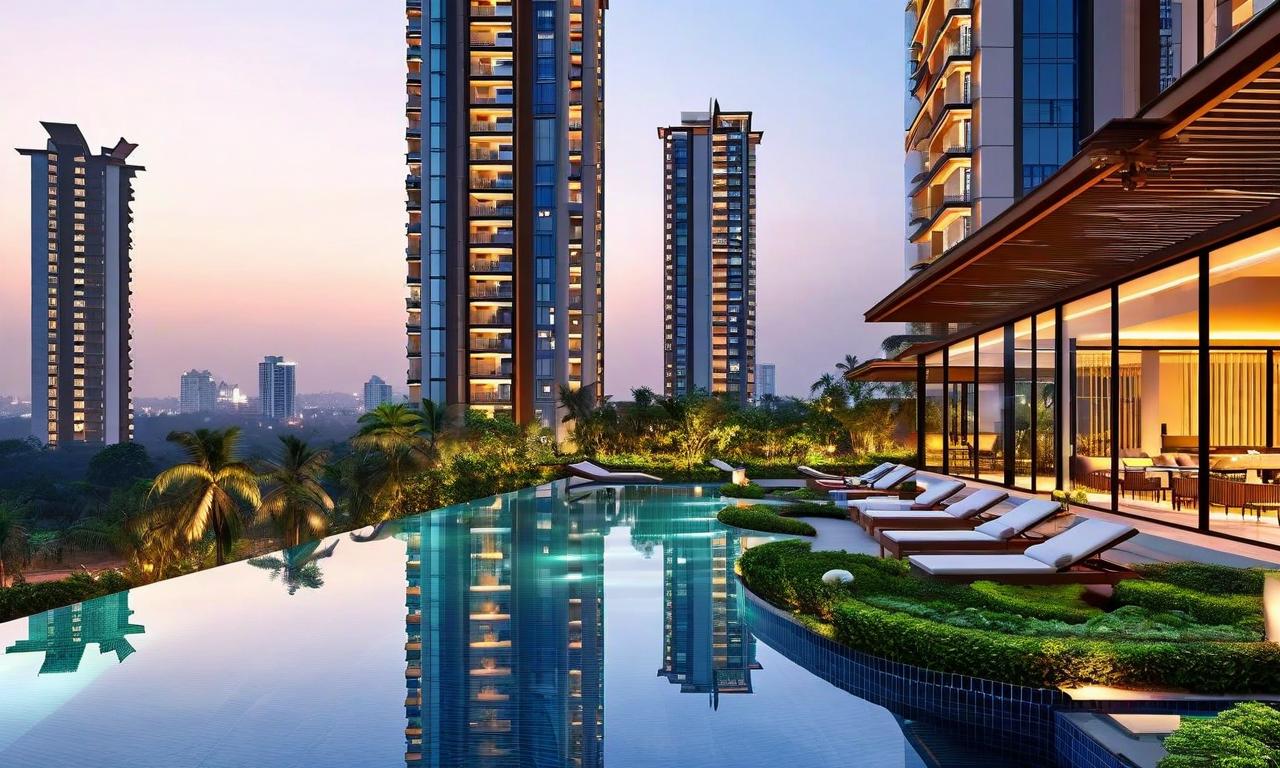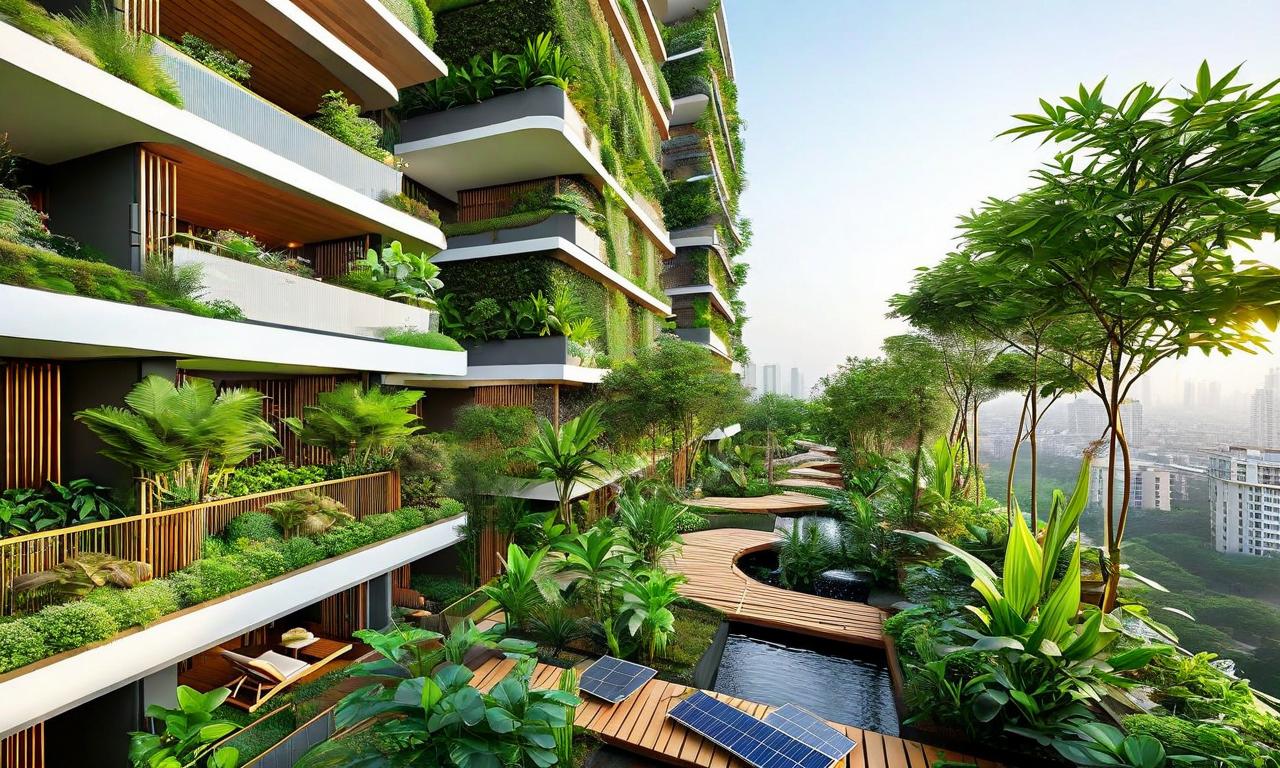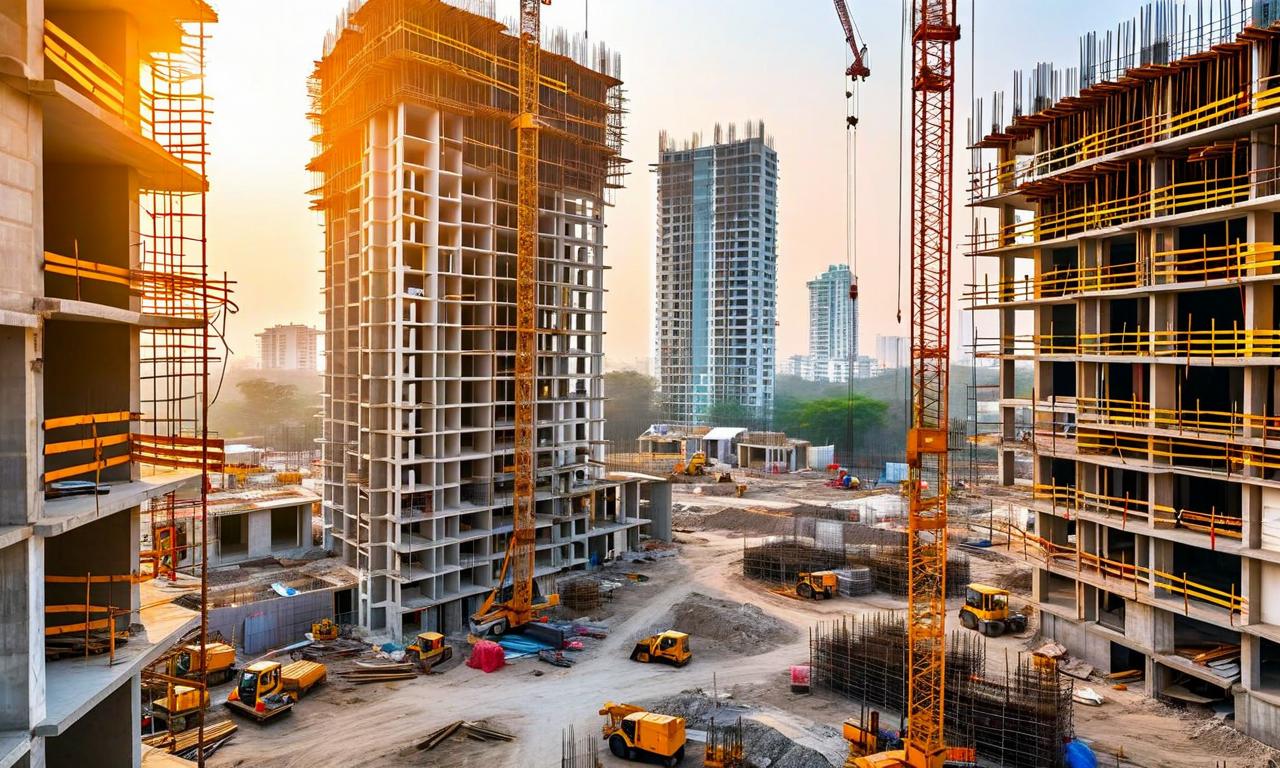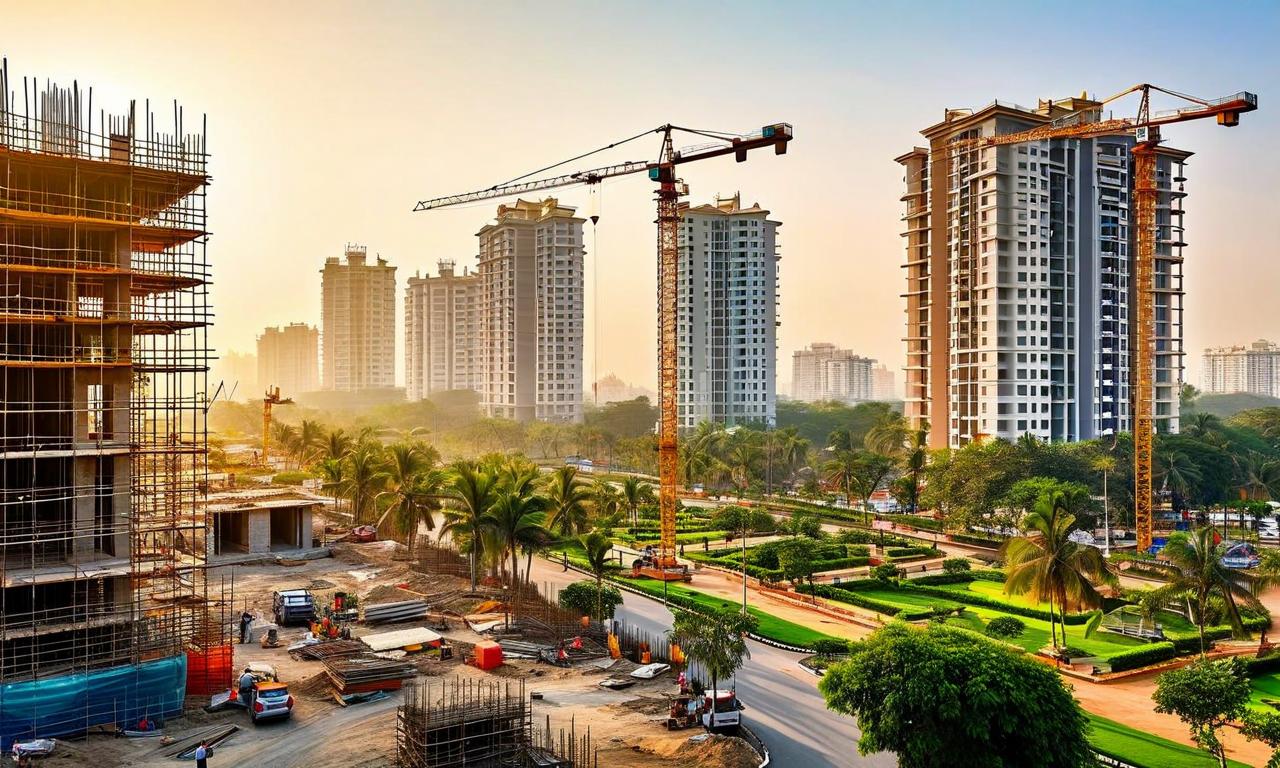Affordable Housing in India Shrinks as Construction Costs Soar 40%
The affordable housing segment in India is experiencing significant challenges due to a 40% increase in construction costs over the past five years. This has led to a sharp decline in affordable housing availability and sales. The share of affordable housing in new launches has dropped from 40% in 2019 to 12% in H1 2023, while its proportion in overall sales has fallen from 38% to 18%. Key factors driving the cost increase include rising prices of cement (30-57%), steel (50%), copper (91%), and labor costs (150%). Construction costs for affordable housing now range from ₹1,800 to ₹4,500 per sq ft across major cities. Developers are struggling to manage costs, with residential prices in metropolitan areas rising 9-12% annually. Potential relief may come from proposed GST reforms and restoration of input tax credits.
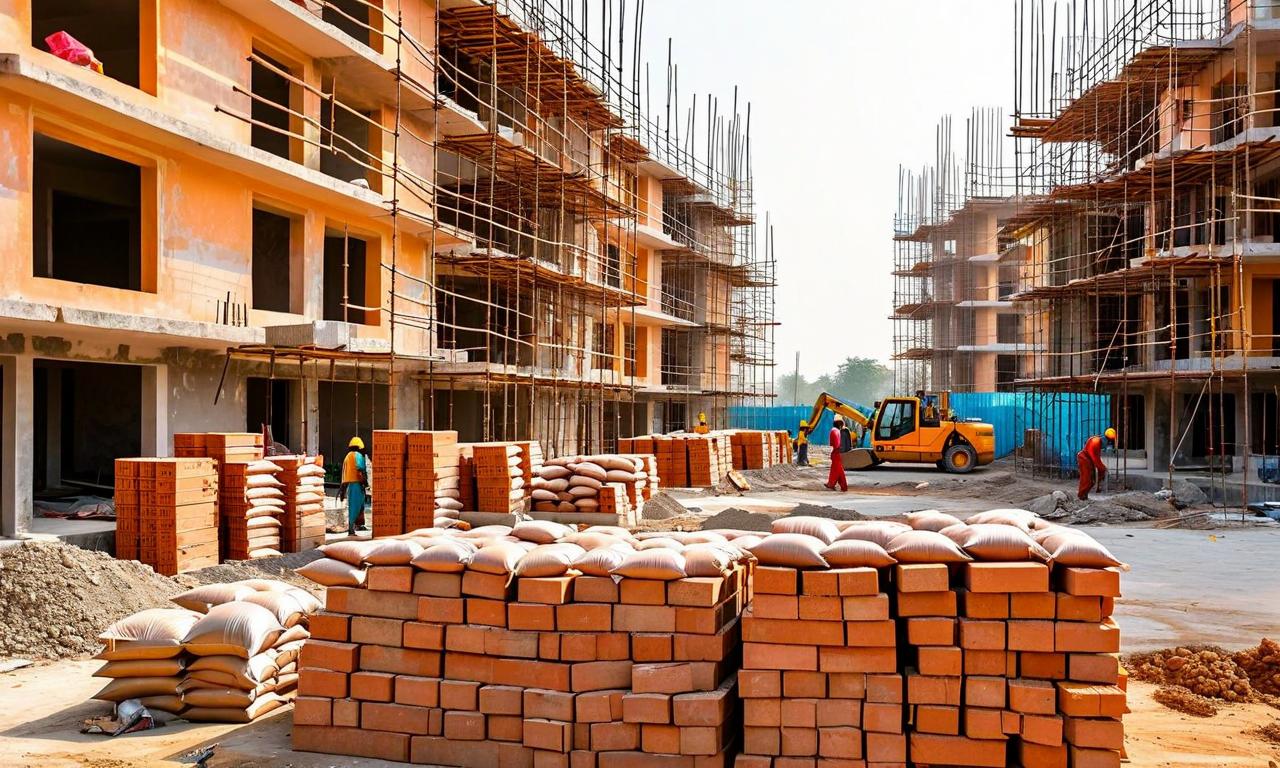
*this image is generated using AI for illustrative purposes only.
The affordable housing segment in India is facing significant challenges as construction costs have surged by 40% over the past five years, according to recent data from ANAROCK Research. This dramatic increase in costs has led to a sharp decline in the availability and sales of affordable housing units across the country.
Declining Share of Affordable Housing
The impact of rising costs is clearly reflected in the market trends:
- New launches: The share of affordable housing in new launches has plummeted from 40% in 2019 to just 12% in the first half of 2023.
- Sales: The proportion of affordable housing in overall sales has dropped from 38% to 18% during the same period.
Key Drivers of Cost Increase
Several factors have contributed to the steep rise in construction costs:
- Cement Prices: Despite a 15% correction last year, cement prices have increased by 30-57% over the past five years.
- Steel Costs: Steel prices have climbed by 50% since 2019.
- Copper Prices: A staggering 91% increase in copper prices has been observed.
- Labor Costs: The most significant jump has been in labor costs, which have spiked by 150% since 2019, with a 25% increase in the past year alone.
City-wise Construction Costs
The cost of construction for affordable housing varies significantly across major Indian cities:
| City | Cost Range (₹ per sq ft) |
|---|---|
| Mumbai | 2,500 - 4,500 |
| Delhi NCR | 2,000 - 3,500 |
| Bangalore | 1,800 - 3,200 |
Impact on Pricing and Developers
The rising costs have put developers in a difficult position:
- Developers typically pass on 5-6% of cost increases to buyers through escalation clauses.
- Residential prices in metropolitan areas have been rising by 9-12% annually.
- Potential tariffs of 25-50% on imports could further increase construction costs by 1.5-5%.
Potential Relief on the Horizon
While the situation looks grim, there are some potential measures that could provide relief:
- Proposed GST reforms aim to reduce cement GST from 28% to 18%.
- Restoration of input tax credits is under consideration.
- These reforms could potentially provide a 2-4% price relief for affordable housing.
The affordable housing segment, once a booming part of India's real estate market, is now under severe pressure. As construction costs continue to rise, it remains to be seen how developers and policymakers will address this challenge to ensure housing remains accessible to a broader segment of the population.

